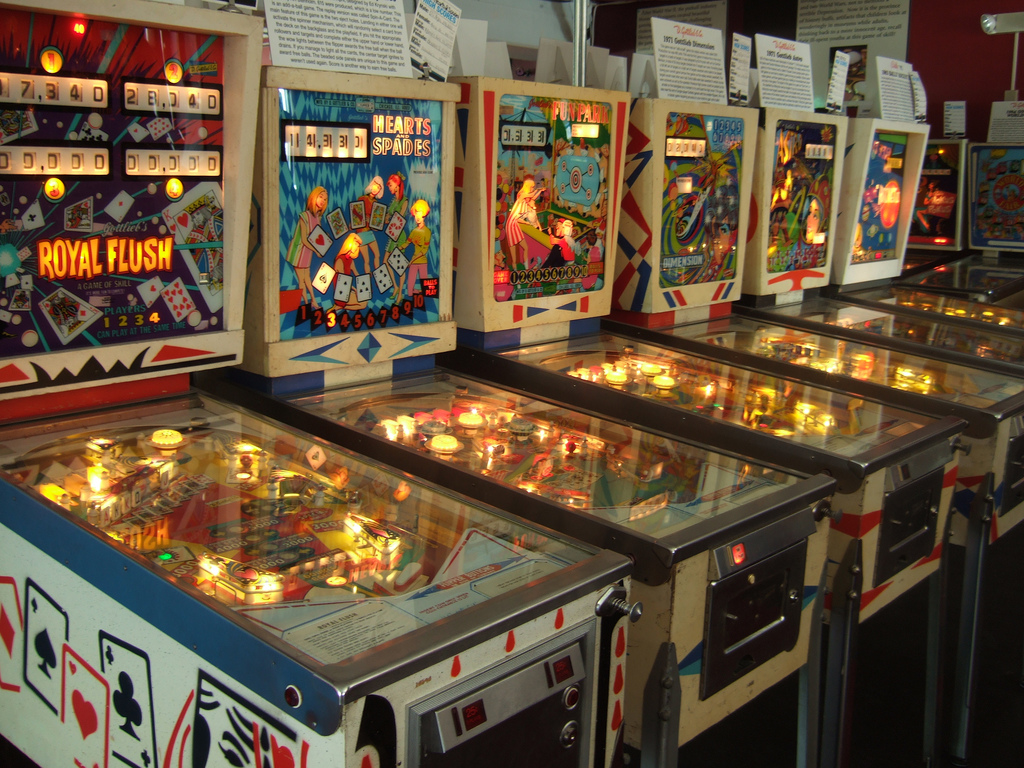Ihave never been much of a gamer. I can never stay interested long enough to get good at them, and I hate not being good at things. Generally, what happens when I try a new game is some version of the following sequence of events: Joe pays $19.99 for game, and spends an afternoon struggling through the tutorial levels. Joe gets bored and puts the game on a shelf.
Months later, Joe sees the game on the shelf and remembers that $19.99, so he plays it again. The game is still boring. To try and get more into the game, mostly because he paid $19.99 for it, Joe seeks out friends to play the game with.
Joe loses horribly and throws controller because he hates losing. He then has to buy his friends a new controller and apologize for being too competitive.
So, you see, in the past video games have meant financial strain and needing to apologize for things, the latter of which I hate more than I hate losing.
Recently, however, I discovered the Fallout series. The games are set in a post-apocalyptic universe, where nuclear fallout has produced a futuristic Wild West, complete with robots, genetically mutated monsters, and pearl-handled revolvers.
The games are beautifully animated and brilliantly designed, with the developers opting to give the player a large plethora of optional missions and story arcs rather than the traditional structured plot. I am a very achievement-oriented person, and something about the way achievement was earned in that game just hooked me. When I discovered the series in high school, I wasted an entire summer playing it.
I never nailed down exactly why this game sucked me in, until I had an epiphany while reading the novel Pinball, 1973, by Haruki Murakami (whom I highly recommend) a few days ago.
Murakami writes about a man’s addiction to a playing a retro pinball machine, saying “Almost nothing can be gained from pinball. The only payoff is a numerical substitution for pride.”
This made me stop and think. People take pride in what they see as their identity; athletic dress like athletic people, talk about athletics, and spend lots of time practicing and participating in athletics.
It’s the same with smart people, attractive people, good speakers, good students, the compassionate and the pious. They are proud of and identify with what they do.
I had only ever really played one game, but what drew me into it was that it was hard work, it took a lot of time and a certain level of skill, and I actually had a lot of pride in what I had done.
While Fallout is much more complex than pinball, the result is the same: in the end, you get a score, of sorts, that defines your performance within the framework of the game.
For a pinball player, their goal is to get a high score. For someone who was addicted to the game like Murakami’s protagonist, his pride is based on his performance in this game.
How he viewed himself and how he constructed his identity was predicated off of his high score. He was 411,970, and that number is substituted for his pride.
Other people may not look at him and think “411,970”, the same way as they might look at a good student and think “good student”, but the key is that he thinks of himself as 411,970. His pride is based upon his performance within these parameters; he defines himself through the criterion of this game.
Of course, many readers’ gut reaction may be, “Wow that’s so sad, a guy who wastes his life trying to achieve these fake goals.” Well, how you define yourself? What do you take pride in? Do you get good grades? Do you score a lot of touchdowns? Are you successful socioeconomically?
When you get your paycheck or report card, or when you score that touchdown you are getting a number designed to give you some measure of pride on your performance within a manmade, artificial construct.
This is not to say that these achievements are worthless, but rather that every one of us sometimes forgets what we should take pride in, and construct our identities around.
When you finish doing something, look at what you have created. You are not the score you are handed after you act, but you are what you create, and that is what your pride and your identity should be built upon.
